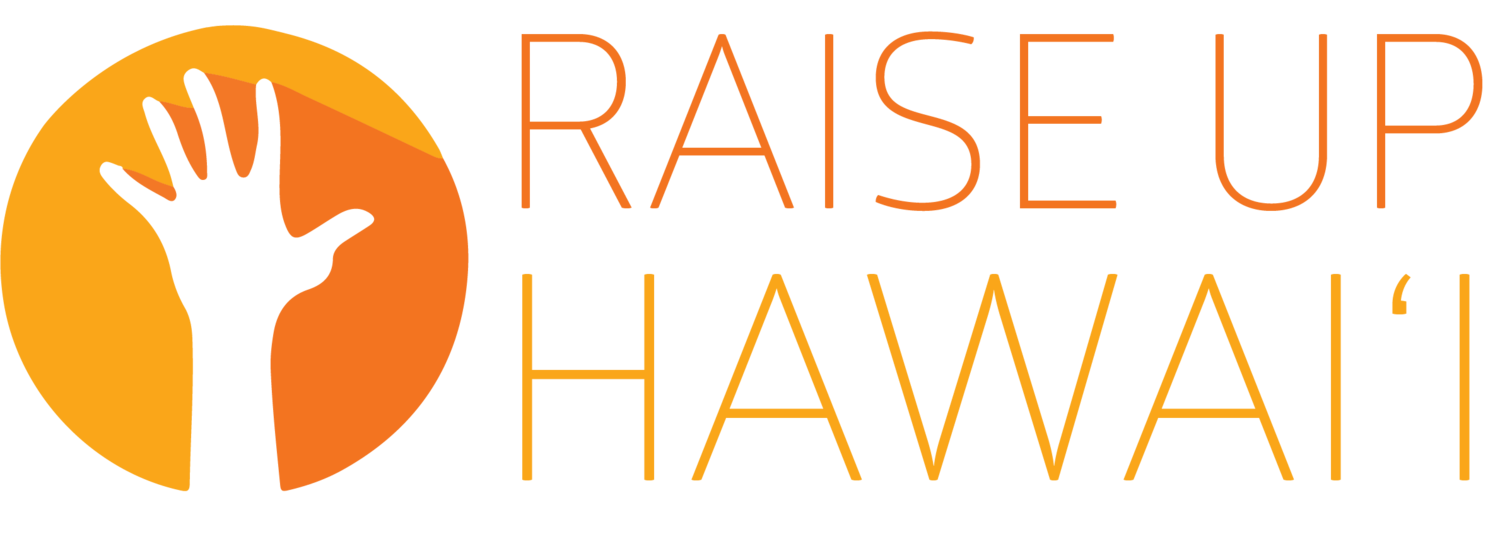How much is Hawai‘i’s minimum wage now?
Hawai‘i’s minimum wage increased to $10.10 on January 1, 2018. At this rate, a person working full-time, with holidays or vacation or sick time, takes home just $21,000 a year. The legislature in 2014 enacted incremental increases to Hawai‘i's minimum wage, with $10.10 as the last step, so it's been losing ground to inflation for more than 4 years. In fact, Hawai‘i’s full-time minimum wage workers have been losing the equivalent of over $500 per year to inflation alone.
With the highest cost of living in the nation, $10.10 is not a living wage for a single adult in Hawai‘i, much less adults supporting children and others. As low-wage jobs become the new normal, working families are falling further and further behind even as the economy continues to grow.
Why $18 rather than $15, or some other number?
Any less than $18would not be enough to pay for basic needs such as food, housing, transportation, health care, let alone incidentals and emergencies. According to data from the Hawai‘i Department of Business, Economic Development & Tourism, the self-sufficiency income standard for a single adult with no children and with employer-provided health insurance in 2018 was more than $35,000 per year, or $16.90 per hour for full-time work with no weekdays off. With inflation, that’s $18.70 in 2021. The self-sufficiency wage for that same adult in 2018 rose above $28.50 per hour with the addition of a child.
Due to the large disparity between the current minimum wage and a living wage, many individuals work two or more jobs to maintain a basic standard of living for themselves and their families. While $18 is a good target for 2022 legislation, inflation and the cost of living will continue to rise. That’s why we are asking for legislation to include automatic inflation adjustments based on the consumer price index, to keep the minimum wage at a livable level in perpetuity.
Isn’t $18 an awfully big increase?
The minimum wage has been falling behind the cost of living for nearly 40 years. If it had kept up with productivity and inflation, it would be $26 by now. The proposed increase in Hawai‘i would not happen overnight. Instead, it would be implemented in steps over multiple years to allow businesses to adjust accordingly. The next 8 highest-costs states, such as California, Washington, New York, New Jersey, Maryland and Washington D.C., have already passed laws to increase their minimum wage to at least $15 in steps. And our cost of living is higher than all of those jurisdictions..
How would this affect small businesses?
Small businesses need customers. A $18 minimum wage would put additional money in the pockets of the people most likely to spend in their communities, and the higher wages mean more productive employees and lower turnover for small businesses. Research shows that higher wages raise worker morale, productivity, and loyalty, which reduces employers' turnover, hiring, and training costs.
Besides, the last time the minimum wage increased in Hawai‘i, by 39% between 2014 and 2018, small businesses thrived. Our state’s unemployment rate dropped by 52% over those 4 years. And over that same period, the number of restaurant servers in Hawai‘i rose by 32%.
Would prices go up?
Concerns about minimum wage increases causing prices to rise are overblown. While employers pass some of the higher labor costs to consumers, the price increases tend to be quite small. That’s because higher wages also mean higher employee productivity and lower turnover costs for businesses.
The overwhelming majority of research on the effects of past minimum wage increases on prices suggests that costs to consumers rise by less than 5 percent—typically far less—over several years, even in industries that employ a lot of workers at or near the minimum wage, such as fast food. Looking at Hawai‘i prices, that means the cost of a spam musubi, a fast food meal, or a gallon of milk would go up by only a few cents per year due to a minimum wage increase.

